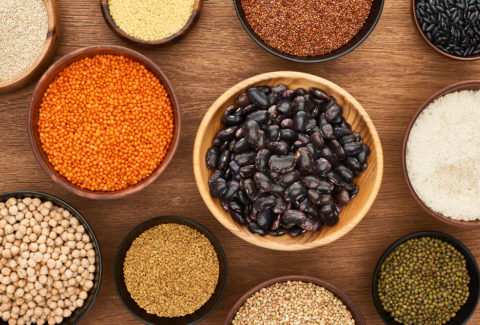The Paradox of Coffee: Navigating Health Benefits and Risks
In the world of beverages, few elixirs are as beloved and debated as coffee. For centuries, this aromatic brew has captivated our senses and fueled our mornings. Yet, amidst the allure of its rich aroma and invigorating taste lies a paradox: the duality of coffee’s health effects.
On one hand, coffee is celebrated for its numerous health benefits. Packed with antioxidants and nutrients, it has been linked to a reduced risk of various diseases, including type 2 diabetes, Parkinson’s disease, and certain cancers. The caffeine in coffee can also enhance cognitive function, boost metabolism, and improve athletic performance. For many, a daily cup of coffee is a ritual steeped in both tradition and wellness.[1]
However, the flip side of the coffee coin reveals potential risks and pitfalls. While moderate coffee consumption is generally considered safe for most individuals, excessive intake can lead to adverse health effects. Too much caffeine can trigger anxiety[2], insomnia, and digestive issues. Moreover, some people may experience heart palpitations or increased blood pressure in response to caffeine consumption[3]. Additionally, pregnant women are advised to limit their coffee intake due to potential risks to fetal development.
Navigating the paradox of coffee requires a balanced approach. Moderation is key: enjoying coffee in moderation can harness its health benefits while minimizing potential risks, keeping in mind that individual tolerance levels may vary, and it’s important to listen to your body’s cues.[4]
Furthermore, the way coffee is prepared and consumed can influence its health effects. Opting for black coffee[5] or minimizing added sugars and creamers can maximize its nutritional value. Additionally, choosing organic, fair-trade coffee can support sustainability and ethical farming practices.
Lastly, the timing of coffee consumption can also impact its effects. Consuming coffee earlier in the day can help mitigate sleep disturbances, while avoiding caffeine in the afternoon and evening can promote better sleep hygiene.
The paradox of coffee underscores the importance of mindful consumption. While it offers an array of health benefits, moderation and awareness are essential to harnessing its full potential. By embracing a balanced approach to coffee consumption, we can savor its pleasures while safeguarding our health and well-being.
So, let’s raise our mugs to the nuanced journey of coffee, embracing its complexities with each delightful sip.
What’s Next on Your Journey to Wellness?
- Explore our comprehensive article series on nutrition and lifestyle mental health, where we delve into the powerful connection between what we eat, how we live, and our mental well-being.
- Elevate your understanding of physical wellness by enrolling in our self-study certificate course. Gain valuable insights into holistic approaches to physical health and well-being, empowering yourself and your clients to live a balanced and vibrant life.
- Dive deeper into the transformative realm of schema therapy with our self-study courses. Learn how to identify early maladaptive schemas and modes that may be hindering your clients’ progress, and discover effective strategies for promoting lasting change and growth.
For more information or to get started on your journey, contact us at contact@sweetinstitute.com. Let’s embark on this journey together toward enhanced wellness and fulfillment.
[1] Barrea, Luigi, et al. “Coffee consumption, health benefits and side effects: a narrative review and update for dietitians and nutritionists.” Critical reviews in food science and nutrition 63.9 (2023): 1238-1261.
[2] Klevebrant, Lisa, and Andreas Frick. “Effects of caffeine on anxiety and panic attacks in patients with panic disorder: A systematic review and meta-analysis.” General Hospital Psychiatry 74 (2022): 22-31.
[3] Miranda, Andreia Machado, et al. “Coffee consumption and risk of hypertension: A prospective analysis in the cohort study.” Clinical Nutrition 40.2 (2021): 542-549.
[4] Ling, Maurice HT. “Coffee as a Potential Nutraceutical.” EC Nutrition 16 (2021): 57-65.
[5] Price, Daicia. “Black Coffee: No Sugar, No Cream.” Journal of Autoethnography 2.4 (2021): 421-433.









